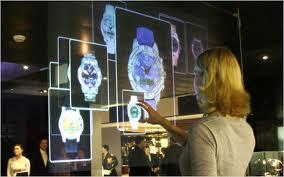Self-tracking can improve people's awareness of their unhealthy behaviors and support reflection to inform behavior change. Increasingly, new technologies make tracking easier, leading to large amounts of tracked data. However, much of that information is not salient for reflection and self-awareness. To tackle this burden for reflection, we created the SalienTrack framework, which aims to 1) identify salient tracking events, 2) select the salient details of those events, 3) explain why they are informative, and 4) present the details as manually elicited or automatically shown feedback. We implemented SalienTrack in the context of nutrition tracking. To do this, we first conducted a field study to collect photo-based mobile food tracking over 1-5 weeks. We then report how we used this data to train an explainable-AI model of salience. Finally, we created interfaces to present salient information and conducted a formative user study to gain insights about how SalienTrack could be integrated into an interface for reflection. Our key contributions are the SalienTrack framework, a demonstration of its implementation for semi-automated feedback in an important and challenging self-tracking context and a discussion of the broader uses of the framework.
翻译:自我跟踪可以提高人们对其不健康行为的认识,支持对行为变化的思考。新技术使跟踪更加容易,导致大量跟踪数据。然而,许多信息对于反思和自我意识并不突出。为了解决这一反思的负担,我们创建了萨利安Track框架,目的是:(1) 确定突出的跟踪事件,(2) 选择这些事件的突出细节,(3) 解释它们为什么信息丰富,(4) 以人工获取或自动显示的反馈方式介绍细节。我们在营养跟踪方面实施了萨利安Track。为了做到这一点,我们首先进行了实地研究,收集了1至5周的基于照片的移动食品跟踪数据。我们随后报告了我们如何利用这些数据来培训一个可解释的、AI的突出模型。最后,我们创建了界面,以展示突出的信息,并进行了编造用户研究,以深入了解萨利安特拉克如何融入一个反思的界面。我们的主要贡献是萨利恩Track框架,这是在重要和富有挑战性的自我跟踪背景下实施半自动反馈的演示。





